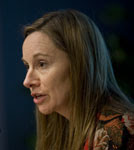-
Former USAID Population Directors Argue for Major Boost in Family Planning Funding
›April 7, 2009 // By Gib Clarke“We know how to do family planning, we know what it costs, and we know that it works,” said Joseph Speidel of the University of California, San Francisco, at the launch event for Making the Case for U.S. International Family Planning Assistance sponsored by the Wilson Center’s Environmental Change and Security Program on March 17, 2009. The key missing element, he said, is political will.
Speidel and his co-authors—all former directors of the U.S. Agency for International Development’s (USAID) Office of Population and Reproductive Health—argued that Congress should more than double spending on international family planning in the coming years for health, economic, and environmental reasons.
The Big Ask
Making the Case recommends that the USAID population budget be increased from $457 million in FY2008 to $1.2 billion in FY2010, growing further to $1.5 billion in FY2014. According to the speakers, this increase is necessary to:- Meet the “enormous pent-up and growing unmet need for family planning”;
- Stabilize population growth rates, especially in Africa; and
- Achieve the Millennium Development Goal of universal access to reproductive health services.
 Duff Gillespie of the Johns Hopkins Bloomberg School of Public Health showed that U.S. funding for family planning has been stagnant in real dollars since the late 1960s, despite the fact that there are 200 million women with an unmet need for family planning. Without champions within USAID and the Obama administration, he said, the dollar amounts appropriated for family planning are unlikely to increase.
Duff Gillespie of the Johns Hopkins Bloomberg School of Public Health showed that U.S. funding for family planning has been stagnant in real dollars since the late 1960s, despite the fact that there are 200 million women with an unmet need for family planning. Without champions within USAID and the Obama administration, he said, the dollar amounts appropriated for family planning are unlikely to increase.
Speidel explained that growing populations, combined with stable or increasing rates of consumption, contribute to climate change. The current rate of population growth is unsustainable, given Earth’s finite natural resources. Changes in behavior and technology—such as eating less meat or using clean energy—could improve environmental outcomes.
Absolute numbers still matter, however: Although population growth rates have declined, the global population continues to grow. Addressing the nearly one-half of all pregnancies that are unplanned would bring great health and environmental benefits, said Speidel. According to Steven Sinding of the Guttmacher Institute, although most economists and demographers agree that economic growth leads to lower fertility, whether lower fertility reduces poverty is still a matter of much debate. But the “demographic dividend” generated by slowing population growth is a reality, he argued, and countries can benefit from it if their institutions are prepared to take advantage of it. For example, a USAID study found that one dollar invested in family planning in Zambia saved four dollars in other development areas.
According to Steven Sinding of the Guttmacher Institute, although most economists and demographers agree that economic growth leads to lower fertility, whether lower fertility reduces poverty is still a matter of much debate. But the “demographic dividend” generated by slowing population growth is a reality, he argued, and countries can benefit from it if their institutions are prepared to take advantage of it. For example, a USAID study found that one dollar invested in family planning in Zambia saved four dollars in other development areas.
A Broader Base of Support Ruth Levine of the Center for Global Development urged the authors to avoid “preaching to the choir.” One way to engage other constituencies interested in demographic issues is to broaden the scope of “population” to include not only family planning, but also migration, urbanization, and other key demographic issues.
Ruth Levine of the Center for Global Development urged the authors to avoid “preaching to the choir.” One way to engage other constituencies interested in demographic issues is to broaden the scope of “population” to include not only family planning, but also migration, urbanization, and other key demographic issues.
In addition, convincing World Bank economists, especially the Bank’s next president, of the connections between declining fertility and poverty reduction should be a priority, said Levine, because developing countries put a lot of stock in the Bank’s advice.
By Gib Clarke
Edited by Rachel Weisshaar
Photos: From top to bottom, Joseph Speidel, Duff Gillespie, Steven Sinding, and Ruth Levine. Courtesy of Dave Hawxhurst and the Wilson Center. -
PODCAST – Forests for the Future: Family Planning in Nepal’s Terai Arc Landscape
›April 3, 2009 // By Wilson Center Staff“The Terai Arc Landscape has a very high population growth rate; people are very much dependent on the natural resources,” says Sabita Thapa in this podcast from the Environmental Change and Security Program.“We are especially working through the population, health, and environment project to address the issues of forest conversion, forest encroachment, and fuel extraction,” explains Thapa
 .
. In this podcast, Thapa, now an environmental advisor with the United Nations Development Programme in the Solomon Islands, and Dhan Rai, senior project manager with World Wildlife Fund-Nepal, discuss WWF’s PHE program in Nepal’s Terai region.
To learn more about PHE in Nepal, read FOCUS Issue 18, “Forests for the Future: Family Planning in Nepal’s Terai Region.”
And for additional resources, please visit our PHE webpage.
Photo: Sabita Thapa. Courtesy of Meaghan Parker. -
VIDEO: Duff Gillespie on ‘Making the Case for U.S. International Family Planning Assistance’
›April 1, 2009 // By Wilson Center Staff“One dollar invested in family planning has a return on the investment of four dollars,” says Duff Gillespie in this expert analysis from the Environmental Change and Security Program.
“If you have a program that allows couples to avert having unwanted pregnancies, it also means there are less children to immunize – there are less schools that have to be built – there are less teachers that have to be trained.”
In this short video, Duff Gillespie, professor at the Johns Hopkins Bloomberg School of Public Health, discusses the recent report Making the Case for U.S. International Family Planning Assistance, and the need to increase funding for family planning around the world.
To learn more, please see a full summary and complete video of Duff Gillespie speaking recently at a March 17, 2009, Wilson Center launch of the report. -
VIDEO: Joseph Speidel on Population, Health, and Environment
›March 31, 2009 // By Wilson Center Staff“If we could do something about unintended pregnancy – which is about 80 million a year – we could dramatically reduce population growth,” and reduce pressure on the environment, says Joseph Speidel in this short expert analysis from the Environmental Change and Security Program.
Speidel, adjunct professor at the Bixby Center for Global Reproductive Health at the University of California, San Francisco, discusses population, health, and environment issues, and offers solutions for the way forward.
To learn more, please see a full summary and complete video of Joseph Speidel speaking recently at a March 17, 2009, Wilson Center event, “Making the Case for U.S International Family Planning Assistance (Report Launch).”
-
Water a National Security Issue, Says Senator Richard Durbin
›March 20, 2009 // By Will Rogers “Water access is no longer simply a global health and development issue; it is a mortal and long-term threat that is increasingly becoming a national security issue,” said Senator Richard Durbin at a March 17, 2009, event on Capitol Hill. Introducing the Paul Simon Water for the World Act of 2009, Senator Durbin called for renewed American leadership on the global water crisis plaguing billions around the world.
“Water access is no longer simply a global health and development issue; it is a mortal and long-term threat that is increasingly becoming a national security issue,” said Senator Richard Durbin at a March 17, 2009, event on Capitol Hill. Introducing the Paul Simon Water for the World Act of 2009, Senator Durbin called for renewed American leadership on the global water crisis plaguing billions around the world.
“The United States needs to do much more to ensure that global water access is protected and expanded,” he said. Senator Durbin’s remarks come on the heels of the Fifth Global Water Forum held in Istanbul, Turkey this week, and precede UN World Water Day on March 22, 2009.
“The global water crisis is a quiet killer,” Durbin said. “In the developing world, 5,000 children die every day from easily preventable water-related illnesses such as cholera, typhoid, and malaria, diseases that have been all but eradicated in wealthier nations.”
The Water for the World Act of 2009 expands a commitment from the earlier Paul Simon Water for the Poor Act of 2005, which has had notable success in focusing U.S. aid on water-related assistance. From 2007-2008, for instance, the U.S. helped provide 2 million people with access to an improved source of drinking water and more than 1.5 million people to improved sanitation.
But these efforts need to be scaled up to reach the billions of people without clean water. According to Representative Earl Blumenauer, speaking at the same event, there are more people in the world today without access to adequate sanitation than the populations of China and India combined. The Water for the World Act of 2009 will seek to provide “100 million people around the world with sustainable access to clean water and sanitation by 2015,” said Durbin.
In addition, if passed, the act will make water a development priority for U.S. foreign assistance and “designates within the State Department a high-level representative to ensure that water receives priority attention in our foreign policy, and establishes a new Office of Water at USAID to implement development assistance efforts related to water,” Durbin said.
Access to clean water and adequate sanitation is a cornerstone for sustainable development around the world. Developing countries will not be able to build their economies or bring their resources to fruition if people in these countries have to travel for hours to find water, or are “too sick from drinking unsafe water, to work or to go to school,” Durbin warned.
Improving access to safe water will not only reduce mortality from waterborne illness, but will help provide long-term stability in countries that suffer from population pressures due large population growth from high total fertility rates. In developing countries, 3,900 children under 5 years old die every day from waterborne illness. “Mothers who fear the deaths of their children bear more, in a desperate race against the odds,” said Senator Durbin. While access to education and family planning programs is also essential to reducing high fertility rates in developing countries, so too is basic access to safe drinking water and sanitation.
But funding for water infrastructure and sanitation programs is just the first step. In developing countries, poor governance is a major roadblock to implementing successful development projects. Unregulated privatization of water can prevent the “voiceless and powerless” poor from gaining access to the water services they need, Durbin cautioned.
To address the challenges of governance, the bill will help “build the capacity of poor nations to meet their own water and sanitation challenges,” Durbin said, by providing “technical assistance, best practices, credit authorities, and training to help countries expand access to clean water and sanitation.”
Working to ensure access to safe water and adequate sanitation can help implement the “smart power” strategy the U.S. desperately needs during a period when the world is redefining America – a strategy to help provide “things people and governments in all quarters of the world want but cannot attain in the absence of American leadership,” writes the Center for Strategic and International Studies (CSIS) Commission on Smart Power.
CSIS President John Hamre said the U.S. should re-establish its moral leadership in the world by making a serious commitment to increasing access to clean water and adequate sanitation. CSIS recently issued a Declaration on U.S. Policy and the Global Challenge of Water, endorsed by more than 35 leaders in business, government, and academia, and called on President Obama “to launch a bold new U.S. campaign to address the global challenge of water.”
“Throughout history, civilized nations have put aside political differences to address compelling issues of life and survival,” said Senator Durbin. “Our generation owes the world nothing less.”
Photo: Senator Richard Durbin. Courtesy of the Office of Senator Richard Durbin. -
Specialty Coffee Project Brings Jolt of Attention to Agriculture, Health in Rural Rwanda
›March 9, 2009 // By Rachel Weisshaar A landlocked, impoverished, densely populated country, Rwanda faces steep challenges in the quest to improve the quality of life of its people, who are mostly small-scale farmers. One solution promoted by the Sustaining Partnerships to enhance Rural Enterprise and Agribusiness Development (SPREAD) project, which I visited last month with the leaders of the East Africa Population-Health-Environment (PHE) Network, is helping farmers produce higher-quality crops, which can be sold for premium prices on international markets. In this way, farmers can increase their income by producing better crops, rather than producing more—since in Rwanda, there isn’t any more land to go around.
A landlocked, impoverished, densely populated country, Rwanda faces steep challenges in the quest to improve the quality of life of its people, who are mostly small-scale farmers. One solution promoted by the Sustaining Partnerships to enhance Rural Enterprise and Agribusiness Development (SPREAD) project, which I visited last month with the leaders of the East Africa Population-Health-Environment (PHE) Network, is helping farmers produce higher-quality crops, which can be sold for premium prices on international markets. In this way, farmers can increase their income by producing better crops, rather than producing more—since in Rwanda, there isn’t any more land to go around.
Coffee is Rwanda’s primary export, so SPREAD focuses its efforts there, although it also targets other high-value crops like chili peppers. SPREAD helps organize farmers into cooperatives with their own bylaws and elected leaders; for instance, the highly successful Maraba cooperative includes 1,400 farmers and their families. Agricultural extension agents show farmers techniques for raising the quality of their coffee. One innovation SPREAD has introduced is coffee bikes, which are specially designed eight-speed mountain bikes that can carry up to 300 kg of coffee cherries. SPREAD found that coffee transported to processing stations on the bikes scored 3.5 SCAA quality points higher than coffee transported by foot or truck, due to shorter average times between harvesting and processing.
SPREAD has provided the impetus for the construction of 120 coffee washing stations (CWS) during the past several years, and has also set up three CWS support centers, which assist with quality control. Washing coffee before and after fermentation is key to preserving its quality. SPREAD has made sure to incorporate a number of environmental initiatives into coffee growing and processing, including mulching coffee trees and digging trenches around them to prevent erosion on Rwanda’s steep hillsides; purchasing new water-efficient coffee-washing machines; filtering the CWS wastewater before releasing it into the river; and using vermiculture (worms) to process coffee pulp and mucilage into organic fertilizer. As SPREAD’s Jean Marie Irakabaho put it, growing coffee without caring for the land is like milking a cow without feeding it.
SPREAD has incorporated family planning (FP) and health initiatives into its agricultural work. The same coffee extension workers who teach farmers how to improve the quality of their coffee have been trained to deliver basic health and FP messages and products to them. Working closely with the district government and local health center, SPREAD staff focus primarily on improving maternal and child health; FP; HIV/AIDS prevention, testing, and treatment; and water, sanitation, and hygiene. A weekly radio program, “Imbere Heza” (“Bright Future”), integrates coffee-growing and health information.
SPREAD, which is funded by the U.S. Agency for International Development and led by the Norman Borlaug Institute for International Agriculture at Texas A&M; University, knows it won’t be around forever, so it is striving to make its improvements to Rwandan livelihoods permanent. It created the Rwanda Small Holder Specialty Coffee Company (RWASHOSCCO), a cooperative-owned company that helps cooperatives market and export their coffee. Specialty Rwandan coffee can now be found in online stores like Land of a Thousand Hills Coffee and Allegro Coffee, as well as in cafes around the world. At the East Africa PHE Network workshop, our coffee breaks featured wonderful coffee from the Maraba cooperative. I encourage all coffee connoisseurs to taste for themselves the delicious results of sustained investment in the livelihoods, agriculture, environment, and health of Rwanda’s coffee farmers!
Rachel Weisshaar attended the meeting of the East Africa PHE Network in Kigali, Rwanda. See previous posts on the New Security Beat: “Rwanda: More Than Mountain Gorillas,” “East Africa PHE Network: Translating Strong Results Into Informed Policies,” and “East Africa Population-Health-Environment Conference Kicks Off in Kigali.”
Photo: Jean Marie Irakabaho (left), chief agronomist and coffee research coordinator at SPREAD, shows the beds where worms are being raised to digest coffee pulp and mucilage, while local children look on. Courtesy of Rachel Weisshaar. -
Testosterone: The Ultimate Weapon of Mass Destruction?
›March 1, 2009 // By Will Rogers “The ultimate weapon of mass destruction—and perhaps of economic destruction—is the testosterone molecule,” quipped Malcolm Potts at the February 11, 2009, discussion of his new book, “Sex and War: How Biology Explains War and Offers a Path to Peace,” which explores the pivotal question, “Why do human beings systematically and deliberately kill our own species?” Potts, the Bixby Professor of Population and Family Planning at the University of California, Berkeley, was joined Science magazine’s Ann Gibbons, a leading correspondent on human evolution, who examined whether aggressive human behaviors are evolving in response to changing social structures.
“The ultimate weapon of mass destruction—and perhaps of economic destruction—is the testosterone molecule,” quipped Malcolm Potts at the February 11, 2009, discussion of his new book, “Sex and War: How Biology Explains War and Offers a Path to Peace,” which explores the pivotal question, “Why do human beings systematically and deliberately kill our own species?” Potts, the Bixby Professor of Population and Family Planning at the University of California, Berkeley, was joined Science magazine’s Ann Gibbons, a leading correspondent on human evolution, who examined whether aggressive human behaviors are evolving in response to changing social structures.
Testosterone: Risky Business
“In 1987, some anthropologists and sociologists made a statement at UNESCO that it is scientifically incorrect to say we’ve inherited a tendency to make war from our animal ancestors,” said Potts. “I think that that is wrong.” Evolutionary psychology suggests that humans have inherited certain predispositions that “help us adapt to find food, select mates, avoid danger, and compete for resources in a hostile world,” said Potts. Men compete for women, so it is logical, from a reproductive standpoint, that men would take more risks than women, he argued.
In addition, “there’s strong evidence that there is a genetic tendency for men in the prime of life to attack and kill their neighbors,” Potts noted, while emphasizing that this does not mean that men are preordained to fight one another. “Such predispositions are extraordinarily flexible,” and respond well to peaceful cultural norms.
The Pill Is Mightier Than the Sword
“Once we recognize our violent origins, then we need to ask not ‘why do wars break out?’ but ‘why does peace break out?’” posed Potts. “Judged on the basis of same-species killing,” the violent 20th century may have been the most peaceful in human history, he claimed.
“In the whole of recorded history, I cannot find a single example of women banding together spontaneously and then going out to attack a neighboring group,” maintained Potts. He argued that increasing women’s individual freedom and collective power in civil society and government is the best way to achieve a more peaceful world. More specifically, slowing population growth and promoting more balanced age structures by giving women access to family planning will contribute not just to their own autonomy, but also to long-term peace, he argued.
Evolving To Become Less Aggressive?
“Humans are capable of incredible acts of kindness but also despicable acts of terror,” said Gibbons. “We murder, slaughter, barbeque, and even eat our own species, and we’ve been doing it for a long time.” But it is difficult to determine whether this propensity for aggression is an ancient trait or has more recently evolved. “There are no other human species alive to show us different models for male aggression…so we have look at fossils, DNA, and our closest relatives—the chimpanzees and gorillas,” Gibbons said.
Human aggression may be continuing to evolve. As Gibbons explained, “researchers, as they look at the human genome project—the HapMap Project—have discovered there are many, many genes that have come under natural selection that have evolved in the last 100,000 years, since modern humans spread out of Africa.” Therefore, as warfare becomes less necessary to our daily survival, our species might evolve to become less aggressive. “Are we seeing, in our sexual selection, mates being chosen that are a little less aggressive?” Gibbons asked. “We are still evolving,” she emphasized. “The story isn’t over yet.”Photos: From top to bottom, Malcolm Potts and Ann Gibbons. Courtesy of Dave Hawxhurst and the Woodrow Wilson Center.
-
East Africa PHE Network: Translating Strong Results Into Informed Policies
›February 24, 2009 // By Rachel Weisshaar“The road to inaction is paved with research reports,” said Marya Khan, our Population Reference Bureau facilitator, opening today’s East Africa Population-Health-Environment (PHE) Network workshop on bridging the research-to-policy gap.
At the Environmental Change and Security Program, we know all too well that even the best program or most dramatic research findings don’t stand a chance of being implemented unless they are communicated to policymakers in succinct, persuasive formats. Yet researchers often neglect to convey their results to decision makers and donors, assuming they won’t be interested or won’t appreciate their methodologies, explained Khan. Furthermore, researchers are often hesitant to draw out the policy implications of their findings, believing this is policymakers’ responsibility, while policymakers tend to think this is researchers’ duty—so these critical implications are often never explored.
Today’s sessions aimed to empower the PHE working groups from Rwanda, Uganda, Ethiopia, and Kenya to develop their own strategies to bridge the research-to-policy gap. The groups brainstormed policy communications objectives they wished to achieve—such as officially launching their country PHE network—as well as concrete outcomes that would contribute to accomplishing those objectives—such as convincing representatives from various national government ministries to join their network.
Rachel Weisshaar is attending the meeting of the East Africa PHE Network in Kigali, Rwanda. She will be posting daily updates on the New Security Beat throughout the week (see yesterday’s post).
Photo: Members of the Kenya PHE Working Group discuss communications strategies. Courtesy of Rachel Weisshaar.
Showing posts from category family planning.


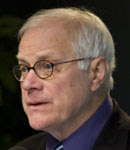 Duff Gillespie of the Johns Hopkins Bloomberg School of Public Health showed that U.S. funding for family planning has been stagnant in real dollars since the late 1960s, despite the fact that there are 200 million women with an unmet need for family planning. Without champions within USAID and the Obama administration, he said, the dollar amounts appropriated for family planning are unlikely to increase.
Duff Gillespie of the Johns Hopkins Bloomberg School of Public Health showed that U.S. funding for family planning has been stagnant in real dollars since the late 1960s, despite the fact that there are 200 million women with an unmet need for family planning. Without champions within USAID and the Obama administration, he said, the dollar amounts appropriated for family planning are unlikely to increase.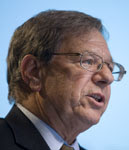 According to Steven Sinding of the Guttmacher Institute, although most economists and demographers agree that economic growth leads to lower fertility,
According to Steven Sinding of the Guttmacher Institute, although most economists and demographers agree that economic growth leads to lower fertility, 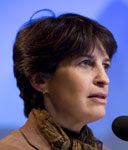 Ruth Levine of the Center for Global Development urged the authors to avoid “preaching to the choir.” One way to engage other constituencies interested in demographic issues is to broaden the scope of “population” to include not only family planning, but also
Ruth Levine of the Center for Global Development urged the authors to avoid “preaching to the choir.” One way to engage other constituencies interested in demographic issues is to broaden the scope of “population” to include not only family planning, but also 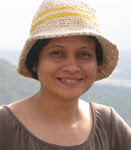 .
. 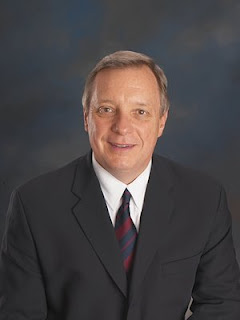 “Water access is no longer simply a global health and development issue; it is a mortal and long-term threat that is increasingly becoming a
“Water access is no longer simply a global health and development issue; it is a mortal and long-term threat that is increasingly becoming a 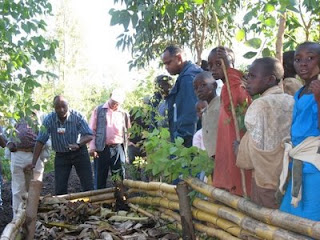 A landlocked, impoverished, densely populated country, Rwanda faces steep challenges in the quest to improve the quality of life of its people, who are mostly small-scale farmers. One solution promoted by the Sustaining Partnerships to enhance Rural Enterprise and Agribusiness Development (
A landlocked, impoverished, densely populated country, Rwanda faces steep challenges in the quest to improve the quality of life of its people, who are mostly small-scale farmers. One solution promoted by the Sustaining Partnerships to enhance Rural Enterprise and Agribusiness Development (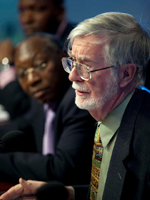 “The ultimate weapon of mass destruction—and perhaps of economic destruction—is the testosterone molecule,” quipped Malcolm Potts at the February 11, 2009, discussion of his new book, “
“The ultimate weapon of mass destruction—and perhaps of economic destruction—is the testosterone molecule,” quipped Malcolm Potts at the February 11, 2009, discussion of his new book, “